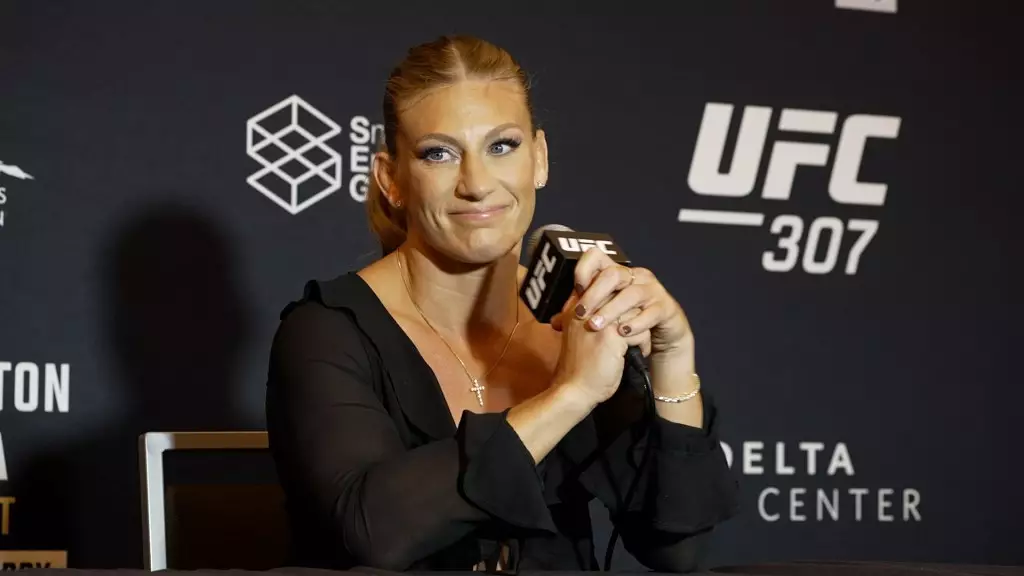In the world of mixed martial arts, few athletes have captured the public’s attention quite like Kayla Harrison. With an impressive professional record of 17 wins against just one loss, Harrison’s journey has been nothing short of remarkable. Her recent switch from the Professional Fighters League (PFL) to the Ultimate Fighting Championship (UFC) in early 2024 has sparked heated discussions, particularly among PFL executives. This article delves into the implications of Harrison’s departure and the thoughts of PFL CEO Donn Davis, who has publicly expressed his disappointment.
Donn Davis’s sentiments reflect a mixture of pride and frustration. He acknowledges Harrison’s substantial contributions to the PFL, noting her emergence as a formidable competitor and two-time champion. Davis’s comments serve to illustrate the broader issue of brand loyalty in professional sports, as he views Harrison’s decision to leave as a missed opportunity for both the athlete and the organization. His hope was to see Harrison seek redemption against Larissa Pacheco, the only fighter to have defeated her, and to face off against Bellator champion Cris Cyborg. These matchups hold significant potential for both Harrison’s career progression and the PFL’s visibility in the competitive landscape of MMA.
The conflicts that arise from Harrison’s exit to the UFC underscore the age-old dilemma athletes face: building a legacy versus pursuing immediate opportunities. For Davis, the two battles he deems critical, one against Pacheco and another against Cyborg, could define Harrison’s career. He labels them as pivotal moments, portraying them as essential for cementing her status in the sport. Harrison is undoubtedly talented, but Davis’s commentary suggests that pursuing these fights within the PFL would have added to her narrative and further solidified her legacy.
The acquisition of Bellator by the PFL marked a transformative moment in professional fighting, creating a larger and more formidable organization. Davis viewed this evolution as a chance to elevate matches that would excite fans and showcase elite talent. Harrison’s decision complicates this vision, highlighting the challenges organizations face in retaining athletes who see newer platforms as opportunities for validation. In a sport where branding plays a crucial role, Harrison’s move to the UFC suggests a desire to prove herself on a grander stage, but at what cost?
As Harrison prepares to take on Ketlen Vieira in her upcoming bout at UFC 307, her trajectory within the UFC could either affirm her status as a top-tier fighter or lead to further speculation about her legacy. The stakes are high, and with the weight of expectations resting on her shoulders, the match could redefine her narrative as a competitor. While Davis’s frustration is palpable, it also opens a dialogue about the evolving nature of loyalty and ambition in mixed martial arts. Ultimately, Harrison’s journey will continue to enthrall fans and provoke discussions about where she stands among the elite of the sport. As she steps into the octagon, the mixed martial arts community watches with bated breath, eager to see how her story unfolds.

